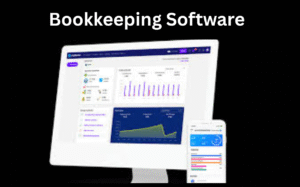Navigating the maze of IRS audits can be daunting for online retailers, but understanding tax strategies can turn a potential headache into a manageable task. As the digital landscape continues to expand, so do the complexities surrounding tax regulations and compliance. Online retailers must stay informed about the nuances of IRS tax audit to safeguard their profits and maintain smooth operations. This post aims to provide you with practical insights into how the IRS conducts audits, what triggers them, and effective strategies to reduce your audit risk. Whether you are concerned about receiving an IRS audit letter or curious about how far back the IRS can audit your records, this guide will equip you with the knowledge to tackle these challenges confidently.
Understanding IRS Audit
IRS audits can be complex, but knowing their basics helps online retailers prepare effectively. This section explores audit triggers, types, and common mistakes to avoid.
What Triggers an IRS Audit?
IRS audits often result from specific factors in tax returns. Large discrepancies between reported income and expenses can raise red flags.
Unusually high deductions compared to income levels may also prompt scrutiny. The IRS uses statistical models to identify returns that deviate from norms for similar businesses.
Consistent losses over multiple years, especially for sole proprietorships, can trigger audits. The IRS may question whether the business is a legitimate enterprise or a hobby.
Incomplete or inconsistent information on tax forms is another common trigger. Ensure all required fields are filled and information matches across different forms.
Types of IRS Audit Explained
The IRS conducts several types of audits, each with varying levels of intensity and scope.
Correspondence Audits: These are the most common and least intrusive. The IRS requests additional information or clarification via mail.
Office Audits: For these, taxpayers must visit an IRS office with specific documents. They typically focus on a few items in the tax return.
Field Audits: These are the most comprehensive. An IRS agent visits the taxpayer’s home, place of business, or accountant’s office to examine records.
Random Audits: The IRS selects some returns randomly for audit to gather data for updating its selection criteria.
Common Missteps to Avoid
Avoiding certain mistakes can significantly reduce audit risks for online retailers.
Failing to report all income is a major error. This includes cash transactions and income from all sources, not just primary business activities.
Misclassifying workers as independent contractors instead of employees is another common issue. This can lead to unpaid employment taxes and penalties.
Taking excessive deductions without proper documentation is risky. Always keep receipts and records to support claimed expenses.
Mixing personal and business expenses can raise suspicions. Maintain separate accounts and credit cards for business transactions.
Preparing for an IRS Audit
Proper preparation is key to navigating an IRS audit successfully. This section covers document gathering, responding to audit letters, and when to seek professional help.
Gathering Essential Documents
Collecting necessary documents is crucial when facing an IRS audit. Organization is key to a smooth process.
Start by gathering all income records, including bank statements, invoices, and sales receipts. These prove your reported income is accurate and complete.
Next, compile expense records such as receipts, canceled checks, and credit card statements. These support your claimed deductions and business expenses.
Collect tax returns and supporting schedules for the years under audit. Include any worksheets or calculations used to prepare these returns.
Keep business records like ledgers, journals, and financial statements ready. These provide an overview of your business operations and financial health.
Responding to an IRS Audit Letter
Receiving an IRS audit letter can be stressful, but a prompt and proper response is essential.
First, carefully read the entire letter to understand what information the IRS is requesting. Note any deadlines mentioned in the letter.
Gather all relevant documents as outlined in the letter. Organize them in a logical order to make the review process easier.
If you need more time to collect information, contact the IRS promptly to request an extension. Most reasonable requests are granted.
Respond in writing, addressing each point raised in the audit letter. Be concise, factual, and professional in your communication.
Professional Help: When to Seek It
Knowing when to seek professional assistance during an IRS audit is crucial for online retailers.
Consider hiring a tax professional if the audit involves complex issues or large sums of money. Their expertise can be invaluable in navigating intricate tax laws.
If you feel overwhelmed or unsure about handling the audit yourself, professional help can provide peace of mind and ensure your rights are protected.
When the IRS proposes significant changes to your tax return or substantial penalties, a tax professional can help negotiate on your behalf.
If you disagree with the audit findings, a tax expert can assist in preparing an appeal or exploring alternative dispute resolution options.
IRS Audit Tax Strategies for Online Retailers
Effective tax strategies can help online retailers minimize audit risks and maximize profits. This section explores best practices in record-keeping, deductions, and cash flow management.
Record-Keeping Best Practices
Maintaining accurate and organized records is fundamental for online retailers to ensure tax compliance and reduce audit risks.
Implement a digital record-keeping system to track all business transactions. This includes sales, purchases, expenses, and inventory movements.
Regularly reconcile your books with bank statements and payment processor reports. This helps identify discrepancies early and ensures all income is properly reported.
Keep detailed records of all business expenses, including receipts and invoices. Categorize expenses accurately to support claimed deductions.
Maintain separate business and personal accounts to avoid commingling funds. This clear separation simplifies record-keeping and strengthens your position in case of an audit.
Deductions Specific to Online Retail
Online retailers can benefit from several specific deductions to reduce their tax liability.
Home office deductions are common for online retailers who operate from home. Calculate the percentage of your home used exclusively for business to determine the deductible amount.
Inventory costs, including purchase price and shipping, are deductible when the inventory is sold. Keep detailed records of inventory movements and valuations.
Shipping and packaging materials used to fulfill customer orders are fully deductible business expenses. Track these costs separately from inventory expenses.
Website hosting, maintenance, and e-commerce platform fees are deductible as necessary business expenses. Include costs for domain registration and online marketing efforts.
Managing Cash Flow Effectively
Effective cash flow management is crucial for online retailers to meet tax obligations and maintain financial health.
Set aside a portion of each sale for taxes to avoid cash shortages when tax payments are due. Consider using a separate savings account for this purpose.
Monitor your cash flow regularly, paying attention to seasonal fluctuations. This helps in planning for slower periods and tax payment deadlines.
Consider using accounting software that integrates with your e-commerce platform. This provides real-time financial data to inform business decisions.
Explore options like quarterly estimated tax payments to spread your tax burden throughout the year. This can help avoid large lump-sum payments and potential penalties.
Reducing Audit Risks
Understanding IRS audit timeframes, trends, and red flags can help online retailers minimize their chances of facing an IRS audit.
How Far Back Can the IRS Audit You?
The IRS has specific timeframes for conducting audits, which online retailers should understand.
Generally, the IRS can audit returns filed within the last three years. This is known as the statute of limitations for most situations.
If a substantial error is identified, the IRS may add additional years to the audit. However, they typically don’t go back more than six years.
For unfiled returns or fraudulent filings, there is no time limit. The IRS can audit these cases indefinitely.
Keep records for at least seven years to be safe. This covers the standard three-year period plus potential extensions.
Understanding IRS Audit Trends: 2024 and 2025
Staying informed about current and future audit trends helps online retailers prepare effectively.
The IRS is increasing its focus on high-income individuals and pass-through businesses. Online retailers with significant income may face higher scrutiny.
Data analytics and artificial intelligence are being used more extensively to identify audit candidates. This may lead to more precise targeting of potential discrepancies.
Cryptocurrency transactions are under increased scrutiny. Online retailers accepting or investing in digital currencies should maintain detailed records.
International transactions and offshore accounts continue to be areas of interest for the IRS. Retailers with global operations should ensure compliance with reporting requirements.
Common Red Flags to Watch Out For
Certain factors in tax returns can increase the likelihood of an IRS audit for online retailers.
Reporting losses for multiple years may raise suspicions about the legitimacy of the business. Be prepared to prove your intent to make a profit.
Large discrepancies between reported income and lifestyle can trigger audits. Ensure your tax return accurately reflects your financial situation.
Claiming 100% business use for a vehicle is often questioned. Keep detailed mileage logs to support business use claims.
Unusually high charitable donations relative to income can raise red flags. Maintain proper documentation for all charitable contributions.
Leveraging Professional Services
Professional tax and financial services can provide valuable support for online retailers in managing their tax obligations and audit risks.
Benefits of a Financial Consultation
Financial consultations offer numerous advantages for online retailers navigating complex tax landscapes.
Expert advice can help identify potential tax-saving opportunities specific to your business model. This may include strategies you hadn’t considered.
Consultations can provide clarity on complex tax regulations and how they apply to your unique situation. This knowledge is crucial for compliance.
Professional insights can help in creating a long-term tax strategy aligned with your business goals. This proactive approach can lead to significant savings over time.
Consultations often include a review of your current financial practices. This can uncover areas for improvement in record-keeping and tax preparation.
Choosing the Right Tax Advisor
Selecting a right tax advisor is crucial for online retailers seeking professional guidance.
Look for advisors with specific experience in e-commerce and online retail. They will be familiar with industry-specific challenges and opportunities.
Check for relevant certifications such as CPA (Certified Public Accountant) or EA (Enrolled Agent). These indicate a high level of expertise in tax matters.
Consider the advisor’s communication style. Choose someone who can explain complex tax concepts in terms you understand.
Evaluate their technology use. An advisor familiar with e-commerce platforms and accounting software can provide more tailored advice.
Book a Consultation Today Hemlock Consultation
Taking the next step towards financial clarity and tax confidence is simple with Hemlock Financial.
Our team of experts specializes in tax strategies for online retailers. We understand the unique challenges and opportunities in your industry.
During your consultation, we’ll review your current tax situation and identify potential areas for improvement. This personalized approach ensures you receive advice tailored to your specific needs.
Don’t wait for tax issues to become overwhelming. Book your consultation today and take control of your financial future.




